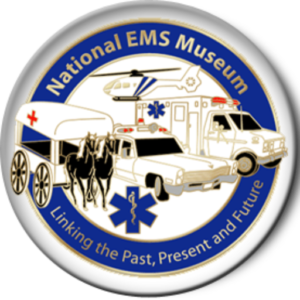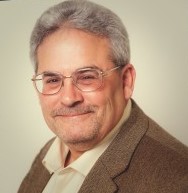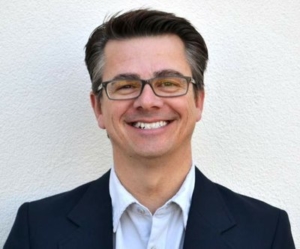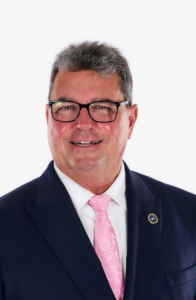CMS Opens Registration for First GAPBAC Meetings
Please either or Join!
Written by AAA Staff on . Posted in Executive, Government Affairs, Legislative.
Written by AAA Staff on . Posted in Legislative.
March 28, 2023
The Honorable Bernie Sanders
Chair
Health, Education, Labor, & Pensions Committee
United States Senate
Washington, DC 20510
The Honorable Bob Casey
Health, Education, Labor, & Pensions Committee
United States Senate
Washington, DC 20510
The Honorable Bill Cassidy
Ranking Member
Health, Education, Labor, & Pensions Committee
United States Senate
Washington, DC 20510
The Honorable Mitt Romney
Health, Education, Labor, & Pensions Committee
United States Senate
Washington, DC 20510
Dear Chair Sanders, Ranking Member Cassidy, Senator Casey, and Senate Romney,
I am writing on behalf of the American Ambulance Association (AAA) to provide comments on policies the Committee should consider during the reauthorization of the Pandemic and All- Hazards Preparedness Act (PAHPA).
The members of the AAA provide mobile health care services to more than 75 percent of Americans. These essential mobile health care services include the local operation of the 9-1- 1 emergency medical services (EMS) system, as well as both emergent and non-emergency interfacility care transition ambulance services and transportation. Often ground ambulance service organizations are the first medical professionals to interact with individuals in need of a health care encounter. These organizations also serve as the health care safety net for many small communities, especially those located in rural areas where other providers and suppliers have reduced their hours of operation or left the community altogether. As such, these organizations play a critical and unique role in the country’s health care infrastructure.
Ground ambulance services are essential to our nation’s emergency medical response system, whether they are needed for a pandemic, natural disaster, or terrorist attack. The country’s EMS system requires federal support to ensure the availability of a well-trained workforce to provide these ground ambulance services. Ground ambulance services are also essential to protecting patient access to the right level of facility-based treatment options.
The AAA supports continued funding for the Hospital Preparedness Program (HPP). Our members have been working closely with the Assistant Secretary for Planning and Evaluation (ASPR) to find ways to direct some of the currently allocated HPP dollars to support ground ambulance services, particularly to address the workforce crisis and support expanded recruitment and training for emergency medical technicians (EMTs) and paramedics. During these discussions, it has become clear that more direct language authorizing the use of a specified portion of the HPP funds to support non-governmental and governmental ground ambulance services would allow ASPR to tackle this issue in a timelier manner.
Ground ambulance service organizations are facing crippling staffing challenges that threaten the provision of crucial emergency healthcare services at a time of maximum need. As we face a pandemic that waxes and wanes but does not end, our 9-1-1 infrastructure remains at risk due to these severe workforce shortages. The 2022 Ambulance Employee Workforce Turnover Study by the American Ambulance Association (AAA) and Newton 360 – the most sweeping survey of its kind involving nearly 20,000 employees working at 258 EMS organizations — found that overall turnover among paramedics and EMTs ranges from 20 to 30 percent annually with organizations on average having 30% of their paramedic positions open and 29% of their EMT positions.
The Congress and the President recognized the crisis and the FY23 Consolidated Appropriations called on ASRP to address this shortage by implementing a grant program to support non- governmental and governmental ground ambulance suppliers and providers through the HPP to address emergency medical services preparedness and response in light of the workforce shortage. While this language is helpful, the AAA recognizes that authorizing authority would provide a more sustainable approach to support an EMS workforce grant program.
Such a program would be consistent with the goals of ASRP. The FY24 HHS Budget in Brief highlights to goal of making “transformative investments in pandemic preparedness and biodefense across HHS public health agencies to enable an agile, coordinated, and comprehensive public health response to future threats and protect American lives, families, and the economy.” (HHS Budget in Brief 142). Ground ambulance medical services are an essential part of this preparedness and response goal.
Our nation’s ground ambulance service organizations, EMTs, and paramedics need Congress to address the EMS workforce challenges facing these front-line health care workers by including direct authority to use $50 million of the HPP funding to establish an EMS workforce grant program to address the crippling EMS workforce shortage, including in underserved, rural, and tribal areas and/or address health disparities related to accessing prehospital ground ambulance healthcare services, including critical care transport. The grants would be available to governmental and non-governmental EMS organizations to support the recruitment and training of emergency medical technicians and paramedics. The program would emphasize ensuring a well-trained and adequate ground ambulance services workforce in underserved, rural, and tribal areas and/or addressing health disparities related to accessing prehospital ground ambulance health care services.
This program is critically important to supporting the non-governmental and governmental ground ambulance service organizations that are the backbone of the country’s first emergency medical response system. The dollars would be used to provide grants directly to non- governmental and governmental ground ambulance service organizations to support training and retention programs, such as paying for initial training; providing tuition for community colleges EMT/ paramedic training courses; paying for required continuing education courses; supporting costs related to licensure and certification; and supporting individuals in underserved areas with transportation, child care, or similar services to promote accessing training.
The most significant gap in PAHPA and HHS on preparedness and readiness activities is the exclusion of non-governmental entities from many of the federal programs targeted to first responders and EMS. This oversight results in more than one-third of local communities and their citizens not being able to access or benefit from the programs and funding that Congress intended be provided to support them. The AAA requests that the Committee recognize the decision-making authority to rely on non-governmental ground ambulance service organizations and provide access to programs that are currently available to governmental organizations.
During the pandemic, non-governmental local community ground ambulance organizations were not permitted to apply for or participant in many of the federal grant programs in place during the pandemic. As a result, these programs fell short of the goal of supporting preparedness and response activities at the local level.
The distinction between governmental and non-governmental appears to be based on outdated assumptions that first responders are only governmental or not-for-profit entities. This assumption ignores the decisions of state and local governments to contract with private ground ambulance service providers and suppliers to provide 911 or equivalent services. The federal government should respect these local decisions and support all ground ambulance services as first-responders and EMS.
One example of this problem is the FEMA public assistance grant program that reimbursed “first responders” for PPE and other expenses related to the response to COVID-19. When non- governmental (including not-for-profit) emergency ambulance service organizations sought direct reimbursement under the program, they were turned away. This differential treatment impacts communities across the United States, including those in Arkansas, California, Colorado, Florida, Georgia, Indiana, Louisiana, Massachusetts, Mississippi, Nevada, New York, Oregon, Texas, and Wisconsin, among others.
Appendix A includes list of some of the program the AAA has identified that should reviewed and updated to include non-governmental entities.
The solution to this problem is to use the more inclusive language that the Congress adopted in the Homeland Security Act of 2002 (6 U.S.C. § 101) on non-governmental and governmental entities within the definition of “emergency response providers.” This language provides access to all ground ambulance services and the communities they serve to funding when available to support preparedness and response activities.
On behalf of ground ambulance service organizations of the AAA, I want to thank you for the opportunity to provide comments on the PAHPA. We look forward to working with your team as you continue develop these policies.
Sincerely,
Randy Strozyk President
http://www.firegrantsupport.com/afg/faq/08/faq_emer.aspx#q1
The grant program prohibits “for-profit” organizations from applying for grant funding.
Retrieved from http://www.firegrantsupport.com/safer/faq/08/faq_elig.aspx#q1
Only fire departments and volunteer firefighter interest organizations are eligible for SAFER grants.
$45B to reimburse activities such as medical response, procurement of PPE National Guard deployment, coordination of logistics, implementation of safety measures, and provision of community services. According to FEMA, these funds will cover overtime and backfill costs; the costs of supplies, such as disinfectants, medical supplies and PPE; and apparatus usage. (The federal government will cover 75% of these costs.) NAEMT recommends FEMA’s new sheet on FEMA’s Simplified Public Assistance Application. In addition, you should consult with their state emergency managers to begin the process of being reimbursed. Eligible to apply: Public and some non-profit services.
The Emergency Management Baseline Assessment Grant (EMBAG) program provides non- disaster funding to support developing, maintaining, and revising voluntary national-level standards and peer-review assessment processes for emergency management and using these standards and processes to assess state, local, tribal, and territorial emergency management programs and professionals.
The Nonprofit Security Grant Program (NSGP) provides funding support for target hardening and other physical security enhancements and activities to nonprofit organizations that are at high risk of terrorist attack.
The Siren Act supports public and non-profit rural EMS agencies through grants to train and recruit staff, fund continuing education, and purchase equipment and supplies from naloxone and first aid kits to power stretchers or new ambulances.
Eligibility requirements exclude for-profit private EMS.
Public Safety Officers’ Benefits Improvements Act of 2011 (S. 1696).
Added non-profits (but still excluded for profits) in the Public Safety Officers’ Benefit (PSOB) program. This legislation extended the federal death benefit coverage to paramedics and emergency medical technicians (EMTs) who work for a private non-profit emergency medical
services (EMS) agency and die in the line of duty and thank you for including the language of the Dale Long Emergency Medical Service Providers Protection Act (S. 385) in this new bill. Congress established the Public Safety Officer Benefit program to provide assistance to the survivors of police officers, firefighters and paramedics and emergency medical technicians in the event of their death in the line of duty. The benefit, however, currently only applies to those public safety officers employed by a federal, state, or local government entity and non-profits.
Retrieved from http://www.iowahomelandsecurity.org/Portals/0/CountyCoordinators/Grants/FFY09HSGPguida nce.pdf
DHS requires State and local governments to include emergency medical services (EMS) providers in their State and Urban Area homeland security plans. In accordance with this requirement, and as States, territories, localities, and tribes complete their application materials for the FY 2009 HSGP, DHS reminds our homeland security partners of the importance for proactive inclusion of various State, regional, and local response disciplines who have important roles and responsibilities in prevention, deterrence, protection, and response activities. Inclusion should take place with respect to planning, organization, equipment, training, and exercise efforts. Response disciplines include, but are not limited to: governmental and nongovernmental emergency medical, firefighting, and law enforcement services; public health; hospitals; emergency management; hazardous materials; public safety communications; public works; and governmental leadership and administration personnel.
Retrieved from http://www.fema.gov/government/grant/iecgp/index.shtm
Eligibility and Funding
The Governor of each State and territory has designated a State Administrative Agency (SAA), which can apply for and administer the funds under IECGP. The SAA is the only agency eligible to apply for IECGP funds.
Retrieved from http://ojp.usdoj.gov/odp/docs/cedap_factsheet_2008.pdf
Eligibility
Eligible applicants include law enforcement agencies, fire, and other emergency responders who demonstrate that the equipment will be used to improve their ability and capacity to respond to a major critical incident or work with other first responders. Awardees must not have received technology funding under the Urban Areas Security Initiative, or the Assistance to Firefighters Grants program since Oct. 1, 2006. Organizations must submit applications through the Responder Knowledge Base (RKB) website at www.rkb.us.
Written by AAA Staff on . Posted in Regulatory.
Please contact the American Ambulance Association at info@ambulance.org.
|
|
|
|
|
|
Written by AAA Staff on . Posted in Regulatory.
|
|
Written by AAA Staff on . Posted in Legislative, Medicare, Member-Only, News.
Written by AAA Staff on . Posted in Uncategorized.
The 2023 EMS Trend Survey explores issues tied to provider recruitment and retention, including leadership; health and wellness support; and the impact of staffing shortages on providers’ work and job-related stress. We invite EMS field providers, supervisors, senior leadership and educators from all service types and response areas to participate and share the survey with their colleagues. The questionnaire will only take about 10 minutes to complete. Share your input by March 15, and you’ll be entered for a chance to win a $50 Amazon gift card. Your response is confidential and the results, including expert analysis from industry experts from all walks of EMS, will be published in the EMS Trend Report “What paramedics want in 2023” Digital Edition in July, 2023, and shared at the 2023 Pinnacle EMS Leadership Forum. The EMS Trend Report is produced by Fitch & Associates and EMS1, in partnership with EMS Survey Team, and the National EMS Management Association. If you have any questions, please email emstrends@fitchassoc.com
Written by AAA Staff on . Posted in Webinars.
March 15th // 12-1pm ET
The COVID-19 pandemic has had a significant impact on the healthcare system and has highlighted the need for healthcare reform. As the world moves forward from the pandemic, it is likely that the future of healthcare will be shaped by the need for cost containment while continuing to shift the healthcare delivery system to a more value-based care model.
For the past three years, we have seen new innovative approaches to healthcare delivery including the rapid adoption of telemedicine, and it is expected that this trend will continue in the post-pandemic world. Reimbursement reform continues to be an important issue for Emergency Medical Services (EMS) systems, as it affects their ability to provide high-quality care to patients. Despite the disruption that we have seen for the last three years, the EMS industry has continued to push forward with new innovative approaches to service delivery including the expansion of community paramedicine programs and the implementation of alternative programs like the Emergency Triage, Treat, and Transport (ET3) model. During this session, the panelists will discuss the current healthcare landscape, including what innovative programs may be here to stay and what it means for EMS Systems.
Jose G. Cabañas, MD, MPH, FAEMS
President, NAEMSP
Jonathan Oberlander, PhD
Professor & Chair of Social Medicine and Professor of Health Policy & Management
University of North Carolina – Chapel Hill
Paul Hinchey, MD, MBA, FAEMS
COO for University Hospitals in Cleveland, Ohio
Larry McMillan, MHA
Chief Compliance Officer & ET3 Project Lead, Wake County EMS
Randy Strozyk, MBA
President, American Ambulance Association
Lekshmi Kumar, MD, MPH, FAEMS
Medical Director, Grady EMS
Melissa Kroll, MD
Washington University, St. Louis
Written by AAA Staff on . Posted in News, Press.
In October 2022, The National EMS Museum Board of Directors made a progressive and far-reaching decision to re-image the function and direction of the Museum and its Board of Directors. At that time, the Board decided to announce an initiative to reach out to more communities to recruit a diverse and interested group of leaders that could aggressively move the Museum forward through new strategic initiatives. After an extensive search and interview process conducted by an independent review panel, The National EMS Museum is pleased to announce the new members of The National EMS Museum Board of Directors with skills in EMS, museum management, fundraising and sponsorship development:


Larry J. Appel, M.B.A., EMT joins the NEMSM Board of Directors with 45 years of experience in EMS as an EMT. His experiences include non-profit director, business owner, manager of several Maryland-based commercial ambulance services, paid 911 EMS provider, V.P. of Ambulance Sales for FR Conversions, and currently the EMS Business Development Manager for Bioquell (An Ecolab Solution).

Fred Claridge is retired and living in North Carolina after a 41-year career in EMS and emergency management. He served as a field provider, EMS instructor, and administrator, including directing one of the largest EMS systems in the country, as well as service as an emergency planner. Additionally, Fred has served as the inaugural editor of the EMS Historian: The Journal of The National EMS Museum.
Fred is serving at the National EMS Museum Vice President, 2023-2025

Elyssa Gonzales is a Master of Arts candidate at Johns Hopkins University for Museum Studies and Nonprofit Management with an additional focus on understanding museum operations and the continuing value to their communities. Her interests lay in supporting the building and/or restructuring museums from the ground up and to help museums find their unique way of supporting their communities.

J. Sam Hurley, MPH, EMPS, NRP currently serves as the Director of Maine’s Bureau of Emergency Medical Services. Sam began his career in EMS in North Carolina at a small rural volunteer fire department and subsequently continued his involvement with EMS throughout his undergraduate studies at the University of North Carolina at Chapel Hill and graduate school at Emory University, where he worked for Grady Health System in downtown Atlanta.

Cindy Kessler holds a Bachelors of Science in Design and has worked in various positions with museums, aquariums, and nonprofit organizations for the better part of three decades. Outside of her nonprofit work, Cindy is an avid singer, having performed at Carnegie Hall and The Kennedy Center. She is also a writer and artist, and enjoys directing youth theater performances in her spare time.
Cindy is serving at the National EMS Museum Secretary, 2023

Christopher Montera has more than 34 years of experience in Paramedic Services, Public Health, and the Fire Service. He is the Director of State and Federal Programs for ESO and the former Chief Executive Officer at Eagle County Health Service District and holds a Master’s in Health Leadership.
Chris is serving at the National EMS Museum Treasurer, 2023

Gary M. Schindele has been an EMT for 47 years and is a leading subject matter expert in the field of emergency preparedness design and implementation and serves as a member of the Central Florida Disaster Medical Coalition. Gary also volunteers as the Public Affairs Officer for the United States Naval Sea Cadet Corps youth program. Gary is also the President and Owner of Paladin Healthcare LLC which manufactures the original Fairfield Equipment Rail, once the standard for Equipment Management in most ambulances back in the late 70’s and 80’s.

Dave Zaiman has been in and around EMS for over 30 years. He spent 15 years working in the field as an EMT, EMD, and Paramedic. Dave finished his career at Hennepin County Medical Center in Minneapolis MN. Since then, Dave has held several leadership roles in the healthcare technology industry. Dave currently serves as Pulsara’s VP Sales – Midwest.
Dave is serving at the National EMS Museum President, 2023-2025

Alan DeYoung is the current Executive Director of the Wisconsin EMS Association with a passion for strategic development and business marketing. Alan will serve as an Ex-Officio member of the Board of Directors as the Immediate Past President, 2023-2025.
The Board of Directors will continue to be supported by Kristy Van Hoven (Museum Director), Tom Scott (Accounting), and the incredible volunteers of this organization. We invite anyone interested in volunteering to reach out to the Board of Directors at board@emsmuseum. org or Kristy at director@emsmuseum. org.
The National EMS Museum is a volunteer-led organization that collects, preserves, and shares the history of emergency medical response in the United States to celebrate the contributions of providers across the country and inspire future professionals to take up the call. To learn more about The National EMS Museum, please visit emsmuseum.org.
Written by AAA Staff on . Posted in AAA HQ, News.
Rocco V. Morando, the Founder and first Executive Director of the National Registry of Emergency Medical Technicians passed away peacefully and surrounded by family on the morning of February 21, 2023 after a prolonged illness. He was 95. “It is with a heavy heart and deep sadness that I inform you of the passing of our organization’s founder,” Bill Seifarth, the current executive director of the organization announced to his staff and board this afternoon. “Rocco Morando was a luminary in the EMS profession and was instrumental in helping shape the lifesaving system we know today. His legacy will continue to provide inspiration for years to come, and we are grateful for his contributions.”
On June 4, 1970, the National Registry of Emergency Medical Technicians was established following the recommendation of a task force assembled under President Lyndon B. Johnson’s Committee on Highway Traffic Safety. Morando was selected as the National Registry’s founding executive director in 1971 and held that position for nearly two decades.
During his career at the National Registry, Morando oversaw a number of accomplishments, including: the first basic NREMT-A examination administered simultaneously to 1,520 ambulance personnel at 51 test sites throughout the United States (1971); the first recertification of Nationally Registered EMTs based on re-evaluation of skills (1973); the development of the first national paramedic curriculum in conjunction with leading EMS agencies and the University of Pittsburgh (1976-77); and the first NREMT-Paramedic examination (1978); the development of the first NREMT-Intermediate curriculum and examination (1980).
Upon his retirement on December 31, 1988, Morando was honored with a celebration attended by hundreds of friends and representatives from national EMS organizations. The National Registry’s headquarters in Columbus, Ohio was renamed the Rocco V. Morando Building that same year.
The Rocco V. Morando Lifetime Achievement Award, named in his honor, recognizes a lifetime of commitment, contributions and leadership to Emergency Medical Services (EMS). The award is presented by the National Association of EMTs and is sponsored by the National Registry.
Current and former employees, along with those throughout the EMS community, send their thoughts and condolences to Rocco’s family and friends.
Funeral arrangements are still being made at this time. More information will be available on the funeral home’s website.
Copyright © 2023 National Registry of Emergency Medical Technicians (NREMT), All rights reserved. Want to change how you receive these emails?
You can update your preferences or unsubscribe from this list.
View this email in your browser
Written by AAA Staff on . Posted in Government Affairs, Legislative.
Written by AAA Staff on . Posted in AAA HQ, Events.
Preferred Partner Proposal
Leadership Development & Education
Released February 15, 2023 | Responses Due March 17, 2023
The American Ambulance Association is a national trade association that serves ambulance services of all types and sizes. Our primary membership is comprised of leadership level representatives from organizations, including CEOs, owners, directors and managers.
The American Ambulance Association safeguards the future of mobile healthcare through advocacy, thought leadership, and education. AAA advances sustainable EMS policy, empowering our members to serve their communities with high-quality on-demand healthcare. For more than 40 years, we have proudly represented those who care for people first.
The American Ambulance Association board and its members are committed to providing high-quality healthcare to every patient regardless of race, color, sex, age, national origin, religion, sexual orientation, gender identity, status as a veteran, and/or on the basis of differing ability. We dedicate time, thought, and resources to fostering diversity, equity, inclusion, and mutual respect within the Emergency Medical Services workforce and leadership. Together, we save and sustain the lives of community members.
The American Ambulance Association is seeking a preferred partner in the leadership development and education space; experience working with EMS systems, agencies, and individuals is required. The preferred partner program is a minimum of two years (ending in December of 2024) with the opportunity to renew for an additional year.
The goals of this Preferred Partner Program are:
The American Ambulance Association is prepared to offer its preferred leadership development and education partner the following:
The American Ambulance Association expects the following from its preferred partners:
The firm selected will
Individuals and organizations responding to this opportunity should meet the following minimum requirements:
Interested parties should submit a written proposal that specifically defines the products and services offered to mbianchi@ambulance.org no later than March 17, 2023. The timeline for the process regarding the review of and Proposals to the selection is as follows:
As a non-profit, vendor-neutral organization, the AAA does not formally endorse any product, service, or company. The AAA may provide statement or support for activities or products on which it has agreed to collaborate. Statements of support may also be provided for non-collaborative products that are of significant public benefit.
Written by AAA Staff on . Posted in AAA HQ, News.
|
||||||||
| For Immediate Release | ||||||||
|
GLENVIEW, ILLINOIS – February 2, 2023 – The Commission on Accreditation of Ambulance Services (CAAS) is pleased to announce that Mark Postma has accepted the position of Interim Administrator for CAAS’s Ground Vehicle Standard. Mark Postma succeeds Mark Van Arnam, who held the Administrator position from the inception of the Ground Vehicle Standard in 2014. Van Arnam leaves CAAS to take on the role of President of the REV Ambulance Group.
CAAS Chair Dale Berry said “CAAS wishes to extend its deep-felt appreciation for the tremendous contributions that Mark Van Arnam has provided over the last 7 years. Tapping into his significant industry expertise and passion for creating standards that improve ground vehicle safety, Mark Van Arnam was instrumental in establishing the CAAS Ground Vehicle Standard as the emergency transportation’s preferred standard. Our industry is safer because of Mark Van Arnam’s commitment and passion.”
In announcing Postma’s new interim role within CAAS, Dale Berry, said; “CAAS is extremely fortunate to have someone with Mark Postma’s experience and leadership abilities to continue the very successful launch and ongoing development of the Ground Vehicle Standard. Mark Postma has been the CAAS GVS Committee Co-Chair since 2016 and has a depth of knowledge that ensures a seamless transition. Mark Postma started as a paramedic over 40 years ago and continues as an esteemed leader in the EMS field.”
About the CAAS Ground Vehicle Standard (GVS)
Starting in 2014, CAAS established a Vehicle Standard Committee to develop consensus-based ground ambulance vehicle standards called GVS. Thanks to the hard work of this broad-based committee, the third significant update to the standard, GVS 3.0, was released in July 2022.
The new ambulance vehicle section of GVS V3.0 contains updates and edits from the prior version, and includes the latest safety, quality, and compliance requirements for new production ambulances. In addition, GVS V3.0 contains a comprehensive Remount Standard. The GVS Remount Standard provides minimum requirements for both Remounters and Remounted Ambulances, including specific requirements for vehicle production processes and quality control.
About the Commission on Accreditation of Ambulance Services (CAAS)
The Commission on Accreditation of Ambulance Services (CAAS) was established in 1993 to encourage and promote quality patient care in America’s medical transportation system. CAAS is an independent Commission that established a comprehensive series of standards for the ambulance service industry. CAAS accreditation signifies that an ambulance service has met the “gold standard” determined by the ambulance industry to be essential in a modern emergency medical services provider. These standards often exceed those established by state or local regulation. The CAAS standards are designed to increase operational efficiency and clinical quality, while decreasing risk and liability to the organization.
|
||||||||
Commission on Accreditation of Ambulance Services (CAAS)
|
Written by AAA Staff on . Posted in Regulatory.
CMS is pleased to announce the availability of Research Identifiable Files (RIFs) and Public Use Files (PUFs) for two CMS Innovation Center models.
CMMI Model Data Sharing (CMDS) Model Participation Files
CMS is releasing new participation data for the following models:
These models join the 10 models that released data in 2022, bringing the total to 12 models represented in the CMMI Model Data Sharing (CMDS) model participation files. Each model in the release will include a set of three files, one per participant type (entity, provider, beneficiary). Each set of files will be updated on a quarterly basis, reflecting changes captured for the prior quarter. Quarterly updates will include “full replacement files” and will contain data from the launch of each model to the current quarter. The group of models for which files are available will expand over time to include additional models.
To get information about the participating models and data files, please visit the CMMI Model Data Sharing Model Participation Data Initiative page.
Comprehensive ESRD Care (CEC) Model Data
Additionally, CMS is announcing the availability of new Research Identifiable Files (RIFs) for the 2018-2020 performance years for the Comprehensive ESRD Care (CEC) Model. Two RIFs are available for each model year:
CMS will also be releasing the Public Use Files (PUFs) for performance years 4 and 5 on the CEC website. These files contain public information about the model participants and their performance. For more information on the model visit https://innovation.cms.gov/innovation-models/comprehensive-esrd-care.
Follow us on Twitter | Visit the CMS Innovation Center website
Written by AAA Staff on . Posted in News.
Press Release
BROOKFIELD, WI – January 31, 2023 – The long-time ambulance manufacturing team of
Mark Van Arnam and Randy Hanson have been selected to lead the REV Ambulance Group.
Mark will serve as President for the Group and Randy will function as Chief Operating Officer.
“Mark and Randy have worked together in our company’s ambulance operations for over 35
years” stated Paul Bamatter, Chairman of REV Group’s Board of Directors. “They are well
known as the leading ambulance team in the business.”
The REV Ambulance Group is the largest ambulance manufacturing corporation in the industry,
and consists of legendary brands AEV, Horton, Leader, Road Rescue and Wheeled Coach.
“Our main objective is to provide our customers and dealers the high-quality vehicles that they
need and that we are known for,” Bamatter added. “We believe this new leadership team will
take our ambulance group to the next level.”
###
About REV Group, Inc.
REV Group companies are leading designers and manufacturers of specialty vehicles and
related aftermarket parts and services, which serve a diversified customer base, primarily in the
United States, through three segments: Fire & Emergency, Commercial, and Recreation. They
provide customized vehicle solutions for applications, including essential needs for public
services (ambulances, fire apparatus, school buses, and transit buses), commercial
infrastructure (terminal trucks and industrial sweepers), and consumer leisure (recreational
vehicles). REV Group's diverse portfolio is made up of well-established principal vehicle brands,
including many of the most recognizable names within their industry. Several of REV Group's
brands pioneered their specialty vehicle product categories and date back more than 50 years.
REV Group trades on the NYSE under the symbol REVG.
Media:
Julie Nuernberg
Director of PR & Social Media
+1.262.389.8620 (mobile)
julie.nuernberg@revgroup.com
Written by AAA Staff on . Posted in Executive, Government Affairs, Legislative, Regulatory.
|
|||
|
|||
|
Written by AAA Staff on . Posted in Government Affairs, Patient Care.
Access to Emergency Medical Services in Rural Communities: Policy Brief and Recommendations to the Secretary
Provides an overview of issues related to the provision of emergency medical services (EMS) in rural areas. Discusses rural EMS access, financing, and workforce challenges, as well as promising telehealth innovations. Outlines federal programs and resources that support EMS programs. Offers policy recommendations related to access to EMS, workforce, and reimbursement.
Source: HRSA via RuralHealthInfo.org
Written by AAA Staff on . Posted in Human Resources, Recruitment & Retention.
From the National Association of Emergency Medical Technicians
NAEMT is pleased to present the results of our 2022 National Survey on EMS Workforce Engagement and Satisfaction. Earlier this year, NAEMT asked our members and other EMS practitioners about various aspects of their jobs, including pay, how well supported they feel by employers, and if they had plans to leave the profession. In nearly 1,300 responses, EMS practitioners painted a picture of a workforce that remains dedicated to caring for patients and serving the community, but is under a high degree of strain. They also shared their ideas for how EMS agencies could improve engagement and satisfaction. We thank the following members of NAEMT’s EMS Workforce Committee for their contributions to the survey: Robert Luckritz, Aaron Florin, Garrett Hedeen, Julius Jackson, Lawson Stuart, Mark Ponder, Mike Szczygiel and Mike Thomas. NAEMT also thanks FirstNet, Built with AT&T, for its generous sponsorship of the report.
Written by AAA Staff on . Posted in AAA HQ.
|
|
|
|
|
|
|
|
|
|
|
|
|
|
|
|
|
|
|
|
|
|
|
|
|
|
|
|
|
|
|
|
|
|
Written by AAA Staff on . Posted in Regulatory.
The first meeting (virtual) of the Ground Ambulance and Patient Billing Advisory Committee scheduled for January 17 and 18 has been postponed. According to CMS, the meeting is being postponed due to “operational impediments”. We will let you know the new dates for the meeting when announced by CMS.
Written by AAA Staff on . Posted in Operations, Patient Care.
Multiple national organizations and federal agencies have promoted the development, implementation, and evaluation of evidence-based guidelines (EBGs) for prehospital care. Previous efforts have identified opportunities to improve the quality of prehospital guidelines and highlighted the value of high-quality EBGs to inform initial certification and continued competency activities for EMS personnel.
We aimed to perform a systematic review of prehospital guidelines published from January 2018 to April 2021, evaluate guideline quality, and identify top-scoring guidelines to facilitate dissemination and educational activities for EMS personnel.
We searched the literature in Ovid Medline and EMBASE from January 2018 to April 2021, excluding guidelines identified in a prior systematic review. Publications were retained if they were relevant to prehospital care, based on organized reviews of the literature, and focused on providing recommendations for clinical care or operations. Included guidelines were appraised to identify if they met the National Academy of Medicine (NAM) criteria for high-quality guidelines and scored across the six domains of the Appraisal of Guidelines for Research and Evaluation (AGREE) II tool.
We identified 75 guidelines addressing a variety of clinical and operational aspects of EMS medicine. About half (n = 39, 52%) addressed time/life-critical conditions and 33 (44%) contained recommendations relevant to non-clinical/operational topics. Fewer than half (n = 35, 47%) were based on systematic reviews of the literature. Nearly one-third (n = 24, 32%) met all NAM criteria for clinical practice guidelines. Only 27 (38%) guidelines scored an average of >75% across AGREE II domains, with content relevant to guideline implementation most commonly missing.
This interval systematic review of prehospital EBGs identified many new guidelines relevant to prehospital care; more than all guidelines reported in a prior systematic review. Our review reveals important gaps in the quality of guideline development and the content in their publications, evidenced by the low proportion of guidelines meeting NAM criteria and the scores across AGREE II domains. Efforts to increase guideline dissemination, implementation, and related education may be best focused around the highest quality guidelines identified in this review.
Christian Martin-Gill, Kathleen M. Brown, Rebecca E. Cash, Rachel M. Haupt, Benjamin T. Potts, Christopher T. Richards, P. Daniel Patterson & for the Prehospital Guidelines Consortium (2022) 2022 Systematic Review of Evidence-Based Guidelines for Prehospital Care, Prehospital Emergency Care, DOI: 10.1080/10903127.2022.2143603